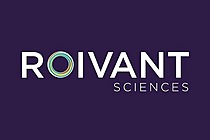
Biotechnology - Industry
Biotechnology is a science-driven industry sector that uses living organisms and molecular biology to produce healthcare-related products. Biotech harnesses cellular and biomolecular processes to develop technologies and products that help improve our lives and the health of our planet. Biotech is best known for its role in medicine and pharmaceuticals, but the science is also applied in other areas such as genomics, food production, and the production of biofuels. Modern biotechnology provides breakthrough products and technologies to combat debilitating and rare diseases, reduce our environmental footprint, feed the hungry, use less and cleaner energy, and have safer, cleaner and more efficient industrial manufacturing processes.
Experts
Aaron Mackey
Anirvan Ghosh
Anish Mohammed
Ash Carter
Aubrey de Grey
Ben Morris
Bhavneesh Sharma
Bill Patalon
Bret Jensen
Carter Neild
Charles Li
Charlie Songhurst
Chris Wood
Christian Angermayer
Christian Olsen
Damien Conover
Dave Lashmet
David Eifrig
Edan Yago
Edmund Ingham
Eric Schadt
Eric Schmidt
Ernie Tremblay
Frank Angella
Hadil Es-Sbai
Heather Brilliant
Hung Tran
Jack Forehand
Jake Weber
Jay Lichter
Jean Hynes
Josh Olszewicz
Josh Williams
Josh Wolfe
Juliette Morgan
Karia Samaroo
Kyle Dennis
Luke Nosek
Max Song
Michael Murphy
Mike Alfred
Mike Taylor
Nate Pile
Patrick Cox
Paul Kohlhaas
Ronald Perelman
Safi Bahcall
Sang Lee
Sebastian Brunemeier
Seth Merrin
Steve Sjuggerud
Sultan Meghji
Terry Chrisomalis
Thomas Equels
Toby Ord
Tomas Philipson
Vivek Ramaswamy
BIOTECHNOLOGY APPLICATIONS
Biotech plays a significant role in developing new drugs and vaccines.
Agriculture.
Biotech is used to improve crop yields, make crops more resistant to pests and diseases, and develop new food products.
Environment.
Biotech is used to clean up pollution and restore damaged ecosystems, where bacteria can be used to break down oil spills, and plants can be used to filter pollutants from water.
Biotech is being used to develop new sources of energy, such as biofuels and biogas.
PROS OF INVESTING
High-growth potential.
Successful biotech companies can disrupt entire industries and achieve explosive growth, leading to substantial returns for investors.
Innovation and impact.
Investing in biotech means supporting the development of life-changing solutions in healthcare, agriculture, and environmental sustainability. It's an opportunity to be part of something bigger than just financial gain.
Diversification potential.
Biotech provides exposure to a unique, often less correlated asset class, potentially enhancing the overall stability and diversification of your portfolio.
Early access to opportunities.
Investing in early-stage startups allows you to potentially capitalize on breakthrough discoveries before they hit the mainstream market.
CONS OF INVESTING
High risk.
Many biotech startups fail to bring products to market, and even promising drugs can face regulatory hurdles or clinical trial failures. This translates to a higher chance of losing your investment compared to more established sectors.
Long investment horizon.
Developing drugs and technologies can take years or even decades, demanding a long-term perspective and patience from investors.
Limited information.
Early-stage companies often have limited track records and publicly available information, making it harder to assess their true potential and risks.
Regulations and approvals.
The development and commercialization of drugs and technologies are subject to stringent regulations and lengthy approval processes, adding uncertainties to the investment timeline.
































































